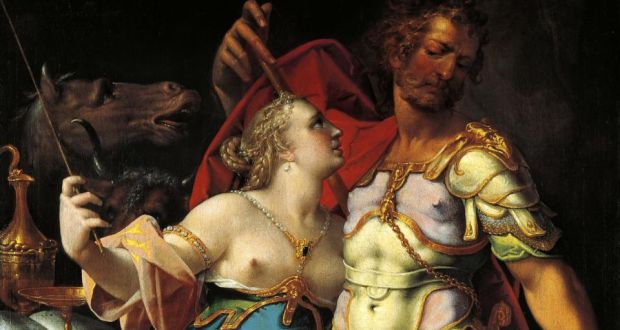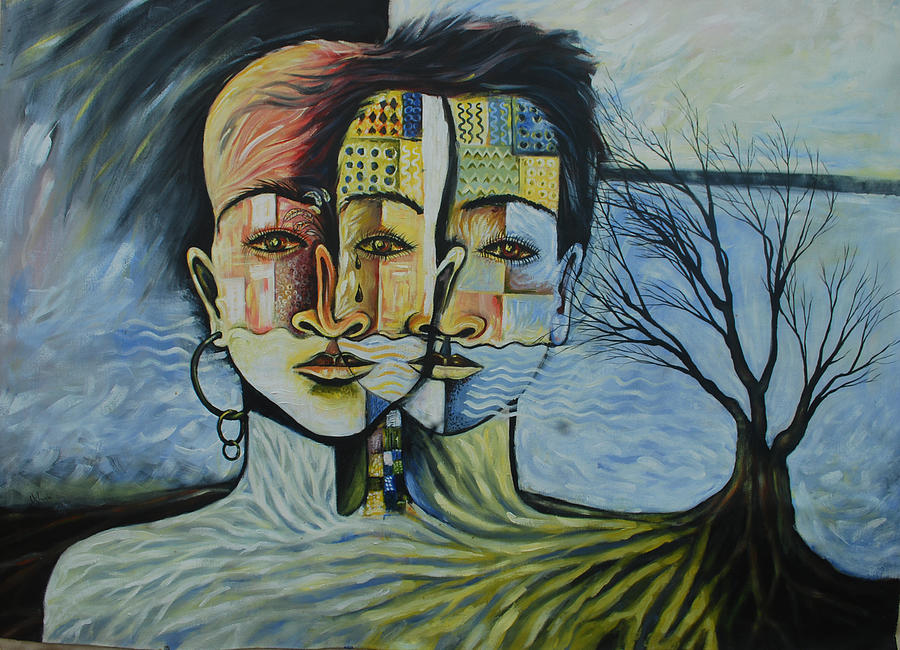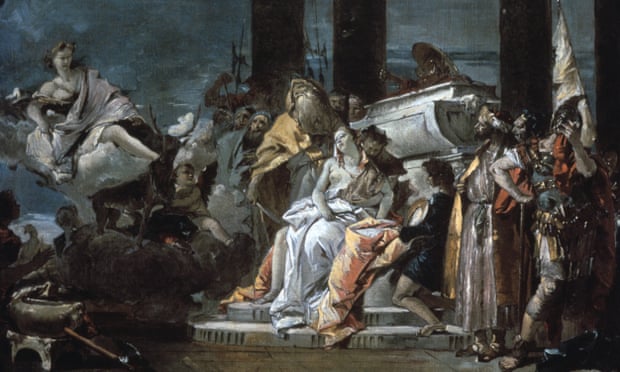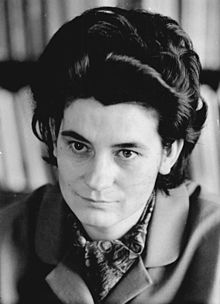The Penelopiad By Margaret Atwood
The Penelopiad by Margaret Atwood is a novel revolving around the wife of Odysseus, Penelope. The novel is written in retrospect, Penelope reviews the events of her life. The Penelopiad showcases that storytelling is woven with lies. Penelope also summarizes the ways in which Greek society has changed since her lifetime.
For a summary of “The Penelopiad”, I recommend this summary. It is brief and most of the summary is already known through the Odyssey but is a good first look into the book. It shows that the novel is a retrospect and is not written in an episodic manner (broken into events with foreshadow and flashbacks).
In this article, the themes of the Penelopiad are analyzed. It showcases how Margaret Atwood took multiple concepts and pointed the issues in which they were clashing with each other.
Finally, I recommend this article as it analyzes the writing style of “The Penelopiad”. This article touches on the concepts that Margaret Atwood utilizes and the result of these concepts. The concepts include class and gender divisions, irony, comedy, tragedy, and Deus Ex Machina (solving a conflict with an unexpected and unlikely occurrence).
For a summary of “The Penelopiad”, I recommend this summary. It is brief and most of the summary is already known through the Odyssey but is a good first look into the book. It shows that the novel is a retrospect and is not written in an episodic manner (broken into events with foreshadow and flashbacks).
In this article, the themes of the Penelopiad are analyzed. It showcases how Margaret Atwood took multiple concepts and pointed the issues in which they were clashing with each other.
Finally, I recommend this article as it analyzes the writing style of “The Penelopiad”. This article touches on the concepts that Margaret Atwood utilizes and the result of these concepts. The concepts include class and gender divisions, irony, comedy, tragedy, and Deus Ex Machina (solving a conflict with an unexpected and unlikely occurrence).
A bed that fits the description of Penelope and Odyssueus's bed.
Circe By Madeline Miller
|
Circe by Madeline Miller is a novel revolving around the mythical sorceress, Circe. The novel is written in an episodic manner, events are separated, and character (Circe) makes visual progress. Circe showcases the values of Greek society and the issues that arise from these values. Circe strives to achieve societal change that would address the issues by changing the values. These issues include gender inequality, freedom, and power.
For a summary of “Circe”, there are two summaries that I recommend. The first summary gives a brief look at the novel and aims to intrigue the reader. It is essentially a sneak peek. The second summary is more comprehensive, it summarizes the novel by breaking it into episodes. This summary also provides a review of the book “Circe”, some information about the author “Madeline Miller”, a comparison between Circe and the author’s previous books and a list of awards the novel “Circe” has won. Finally, I recommend this website as it is a website maintained by the author Madeline Miller. This website includes the following: about the book, characters, readers guide, photo essays and more. |
The daughter of a sea nymph and the Titan sun god Helios, Circe is doomed to immortality
Source: Anna Carey |
The Lost Books of the Odyssey by Zachary Mason
|
The Lost Books of the Odyssey by Zachary Mason is a collection of short stories. These short stories are based on translations of a pre-Homeric papyrus. Each short story is an alternative version of the Odyssey by Homer. Zachary Mason essentially asks the question, “What If?” and proceeds to attempt an answer for the question while leaving room for future discussion.
For a summary of “The Lost Books of the Odyssey”, I recommend this summary. It does not summarize the entire 44 short stories but discusses the memorable ones. In this article, Zachary Mason’s intent and purpose is analyzed. It showcases Zachary Mason’s intent to give the characters of the Odyssey a multi-dimensional personality. These characters cannot be understood with a brief glimpse. Finally, I recommend this article as it analyzes the writing style of “The Lost Books of the Odyssey”. This article touches on the concepts that Zachary Mason utilizes and the result of these concepts. The concepts include internal inconsistency, structural complexity and a general tactic of ignoring logic, reimagining events and motivations. |
Multiple Personalities is a painting by Oghale Thomas Agboge which was uploaded on November 20th, 2013.
|
House Of Names by Colm Tóibín
|
House of Names is a novel by Colm Tóibín. House of Names begins with Iphigenia’s sacrifice at her father’s hand and goes through the myth of the house of Atreus. House of Names does not differ much from the storyline of the myth stated in the Oresteia, the Iliad or Cassandra. The specialty of the House of Names is that the same events are retold but with a modernized logic. Colm Tóibín implies that the events of the myth of the house of Atreus and the actions of the characters involved were influenced by similar societal values and motivations as in the modern era. It provides a logical, emotional and justice-oriented perspective to the myth of the house of Atreus as opposed to the largely spiritual perspective provide by other authors.
For a summary of the novel " House of Names" and a brief historical context regarding the house of Atreus, I recommend this study guide. This study guide also provides the terminology used throughout the novel. This article analyses how Colm Tóibín humanizes the characters of the myth and how motives are provided different from religious reasons. |
Sacrifice of Iphigenia, by Tiepolo, 1735. Photograph: Print Collector/Getty Images
|
Cassandra By Christa Wolf
|
Christa Wolf is a German novelist and essayist, that was born in 1929. She lived in the German Democratic Republic also known as East Germany. Her writings discuss political and economic power, and the effects of power shifts. She experienced multiple power shifts during her lifetime, when Nazi-held Germany became socialist and then when Germany was reunified after the end of the cold war. Her experiences undoubtedly influenced her writings. Cassandra is about the mythical figure Cassandra, daughter of King Priam of Troy and her experience during and the aftermath of the Trojan War. Christa Wolf pays close attention to Cassandra, a character that was otherwise mysterious. This provides an interesting perspective to both the Trojan War and Greek society. According to Cassandra’s perspective, which can be thought of as the female perspective, Troy had shifted from a matriarchal to a patriarchal society. Cassandra emphasizes the issues that was acquired along with this shift such as repression, issues of marginalization, and censorship. The same issues that Christa Wolf was perceiving in her life. Christa Wolf also interprets the Trojan war was as a war fought for “free access to the Dardanelles” or an “economic war”, that Troy was a military state under Eumelos, and that the war was avoidable if not for the stubbornness of the men fighting it. The links below provide information regarding the life of Christa Wolf and the themes that she was passionate about. https://www.newyorker.com/books/page-turner/remembering-christa-wolf https://www.britannica.com/biography/Christa-Wolf https://en.wikipedia.org/wiki/Christa_Wolf https://en.wikipedia.org/wiki/Cassandra_(novel) |





